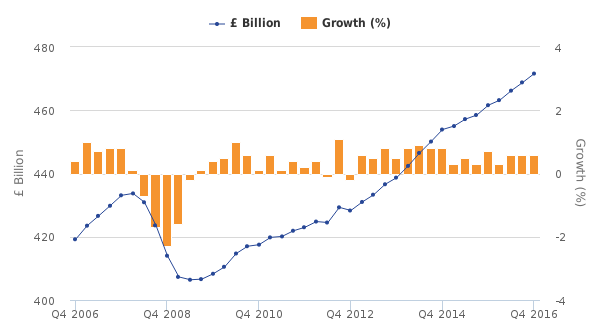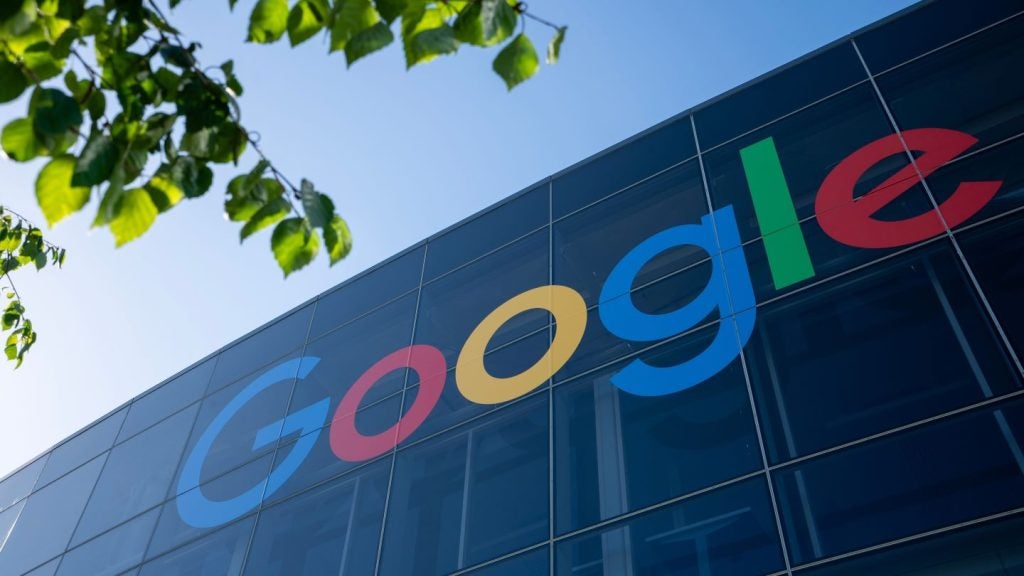
The UK economy grew by 0.6 percent in the last three months of 2016, coming in ahead of expectations and wrong-footing expectations that June’s shock vote to quit the European Union would drag on growth.
Economists polled by Reuters had forecast a slight slowdown to growth of 0.5 percent but the economy is still chugging along at the same growth as in the second and third quarters.
In 2016 as a whole, the economy grew by two percent, down from 2.2 percent growth in 2015 and 3.1 percent in 2014.
Sterling hit a six-week high against the dollar ahead of the latest numbers but despite GDP beating forecasts, though the pound has come under selling pressure following the release.

Growth was dominated by growth from the services sector — which contributes by far the most to the UK economy at around 80 percent — though there was a strong contribution from retail sales and travel agency services.
How well do you really know your competitors?
Access the most comprehensive Company Profiles on the market, powered by GlobalData. Save hours of research. Gain competitive edge.

Thank you!
Your download email will arrive shortly
Not ready to buy yet? Download a free sample
We are confident about the unique quality of our Company Profiles. However, we want you to make the most beneficial decision for your business, so we offer a free sample that you can download by submitting the below form
By GlobalDataThe head of GDP at the Office of National Statistics — which publishes the data — Darren Morgan said:
“Strong consumer spending supported the expansion of the dominant services sector and although manufacturing bounced back from a weaker third quarter, both it and construction remained broadly unchanged over the year as a whole.”
This is not expected to last however.
Despite beating forecasts, Alan Clarke, of Scotiabank, expects GDP growth to slow over the course of 2017 as a result of rising inflation. This could then erode household disposable income and hold back consumer spending growth.
“Our forecast is among the least pessimistic within the consensus. We look for annual growth of 1.6-1.7 percent year-on-year during 2017, which is above consensus forecasts for 1.4 percent year-on-year. If we are going to be wrong, we think it is that we may have been too pessimistic.”
Andrew Sentance, senior economic adviser at PwC, said:
“Strong consumer spending has supported growth over the past three months and this has more than offset the dampening impact of Brexit uncertainty in investment. 2017 will be a more testing year for the UK economy as consumer spending will be squeezed by rising inflation.
“Despite this, we should expect the underlying resilience of the UK economy and healthy global growth to support economic activity in the year ahead. That should enable GDP to grow by close to 1.5 percent in 2017 even though Brexit uncertainties will have a dampening effect.”
Britain was probably one of last year’s fastest-growing major advanced economies, and there are some signs this will continue into early 2017.
But the UK continues to do better than many other countries (on overall GDP at least) pic.twitter.com/uw5dkQIDp7
— Matt Whittaker (@MattWhittakerRF) January 26, 2017







